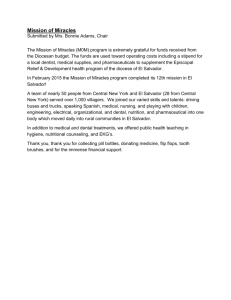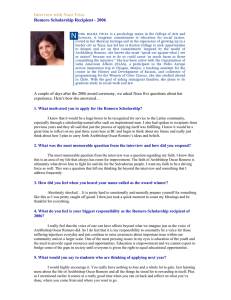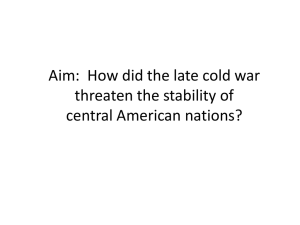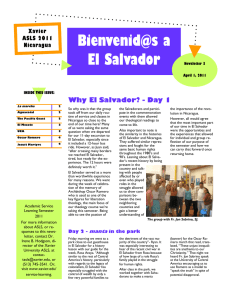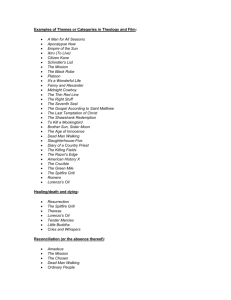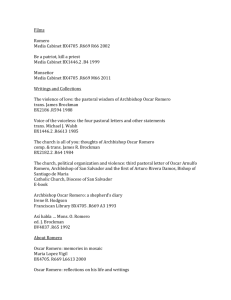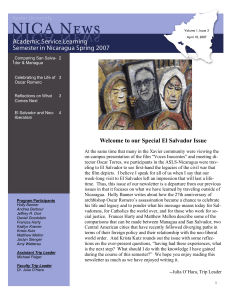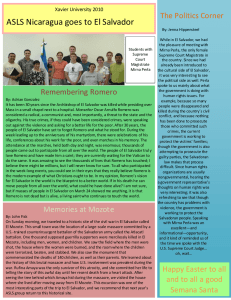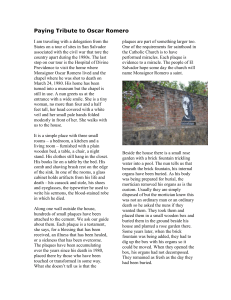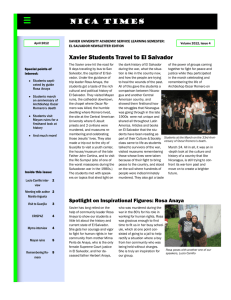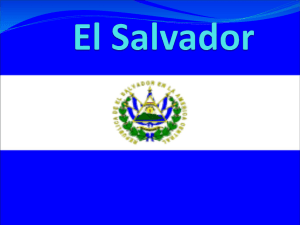Oscar-Romero
advertisement
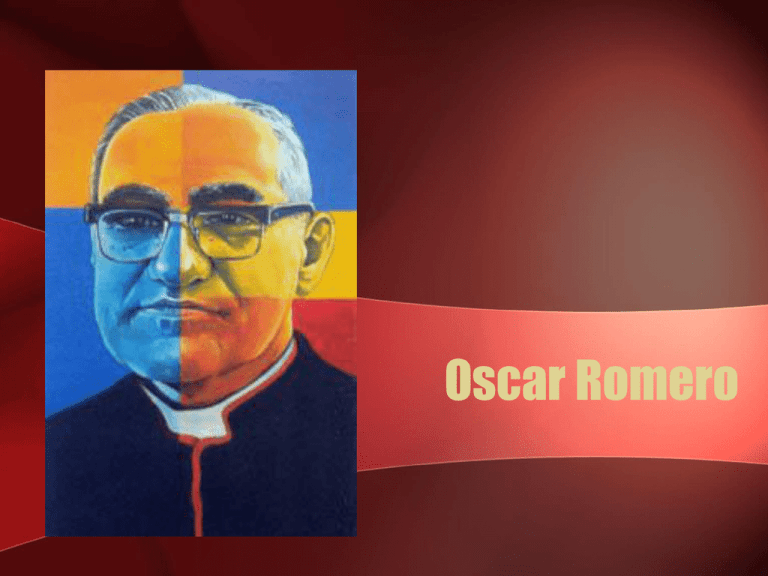
Oscar Romero El Salvador Life in El Salvador in the 1970s • The country was ruled by just a few wealthy and powerful families who used the army to suppress the rest of the population. • Life was grim for the peasants – hunger, poverty, lack of education. • Hundreds of people were murdered, tortured or disappeared every month. Oscar Romero • Born in 1917 in El Salvador. • In 1930 he declared his vocation to become a priest. • Ordained a priest in 1942 in Rome and returned to become a parish priest in 1944. • Made archbishop of San Salvador in 1977 – the leader of the Catholic Church in El Salvador. • He was aware of the oppression, but did not think it was the church’s job to become involved in politics. • A few weeks after Romero was appointed as archbishop, his friend and a priest, Father Rutilio Grande, was murdered. • His crime? • Living alongside landless peasants in poverty, and speaking out on their behalf. • Romero immediately reacted against the corrupt rulers of the country, speaking out against them and the injustices of the poor in his country. Romero's Campaign • Thousands came to his sermons. • They were broadcast every Sunday on the radio. • He was regarded as the spokesperson for truth and justice for the people of El Salvador. • He preached openly against the government. • He said a life motivated by greed was spiritually empty. • He taught that violence could be overcome by Christian love. • He called upon the Church to act on behalf of the poverty stricken peasants. “A church that suffers no persecution but enjoys the privileges and support of the things of the earth – beware! – is not the true church of Jesus Christ” (1979) • But this angered some members of the El Salvador church who even wrote to the Pope complaining about him, saying he was causing political unrest. He tried to gain support from outside El Salvador • In 1979 he visited the Pope with evidence of the injustices in the country. He was told to have courage. • He wrote to the United States President Carter: "You say that you are Christian. If you are really Christian, please stop sending military aid to the military here, because they use it only to kill my people." • But he was becoming too much of a threat to the El Salvador government. On March 23rd 1980, Archbishop Romero made the following appeal to the men of the armed forces: • "Brothers, you came from our own people. You are killing your own brothers. … It is high time you obeyed your consciences rather than sinful orders. The church cannot remain silent before such an abomination. ... In the name of God, in the name of this suffering people whose cry rises to heaven more loudly each day, I implore you, I beg you, I order you: stop the repression.” March 24th 1980 • Romero was shot dead the following day while celebrating Mass in the chapel of the hospital where he lived. • His last words were, “May God have mercy on the assassin.” Romero’s Funeral • His funeral was attended by more than 250,000 mourners from across the world. • Even this turned to violence as soldiers began shooting into the crowd, the resulting panic killing 40 people. Several months before his death, Romero had said words that later would be some of his most famous: "I do not believe in death without resurrection. If they kill me, I will be resurrected in the hearts of the Salvadoran people." “Let my blood be a seed of freedom, and a sign that hope will soon be a reality.” Legacy For the people of El Salvador, Romero was a hero, a Christian who was prepared to speak out against a corrupt government and challenge human rights abuses. Even though he knew that his life was in danger he did not stop defending the oppressed and exploited people of El Salvador.
